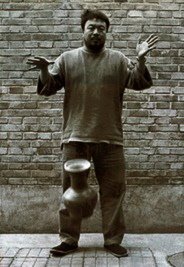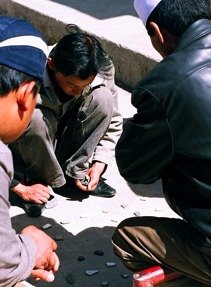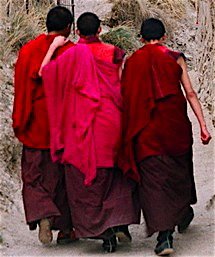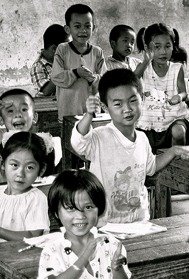 So firstly, the situation is that I and a couple of others are intentionally placed in new schools because we can do our job. The contract the school has with our company is then extended at the end of the year and we then generally move onto another school, often leaving a completely inexperienced teacher in our place. This is not simply due to a lack of able teacher’s in China, though that is a problem, but is also down to the fact that the company I work for is not organised well enough to keep pace with the recruitment requirements.
So firstly, the situation is that I and a couple of others are intentionally placed in new schools because we can do our job. The contract the school has with our company is then extended at the end of the year and we then generally move onto another school, often leaving a completely inexperienced teacher in our place. This is not simply due to a lack of able teacher’s in China, though that is a problem, but is also down to the fact that the company I work for is not organised well enough to keep pace with the recruitment requirements.The moving on of teachers is not, I should also add, always simply down to the companies decision making, but is sometimes ofcourse due to the teacher's own desire to change schedules for the sake of interest or to balance the hours that are also taken up studying Chinese or some other interest.
The school also places trust in our company being a responsible educational institution, when in actual fact the company I work for is more concerned about cost efficiency and profit. This simply can manifest, as it has here, with us teaching from our own cheaply produced textbooks (pamphlets) that are not user friendly and are actually aimed at a higher level student, and ofcourse come at a cost to the school. I have recently discovered the books the school uses in their own classes, they are at an appropriate level and of interest to young kids and should also be used by us.
That leads onto the second point, that we should simply be used to reinforce what the school is doing with its own teaching. The school needs to put trust in its own system and if they don’t actually have one, then they should make sure they organise one, and not rely on us to shoulder the responsibility we are not prepared or organized well enough to shoulder. At that stage, an externally recruited foreign teacher can simply come in and help the students use and reinforce the language they have already been acquainted with.
Finally, another school I work at regularly has everything working quite smoothly. They have regular classes with well-trained Chinese-English teachers, with a rigorous system of monitoring. Foreign teachers then come in and review work the kids were introduced to the previous week. All seems well in the idea and the structure but is whole-heartedly let down by the text books the school has chosen to use. The books are impenetrable, with not a useful sentence pattern insight, no clear clarification of any particular grammar point and random vocabulary that each teacher focuses on differently. Which means that when we go in to review work with them and ask them to independently use some of the language, they have no idea at all. If you ask them to recite what is in the book out loud, no problem. If you question what something means or switch a sentence pattern around or try and activate a key phrase, you are met with a wall of silence. This fact in essence, as far as I can see, breaks down all the good work that is done in the recruitment and structuring of the department and departmental staff.
It is amazing that such a simple issue of choosing a text book can have such a detrimental effect on the level of education and erode so much good work done in other areas. I must emphasize how frustrating it is too see how these decisions so negatively effect the class content and subsequent education, and how easy it would be to become so much better.
Click to continue reading...




















